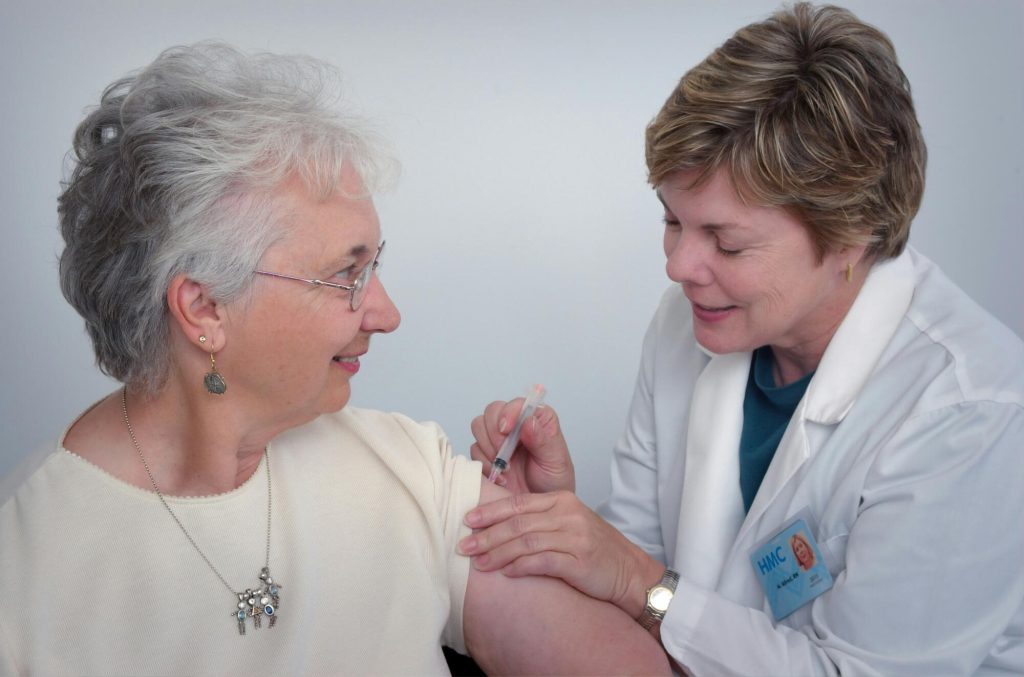Have you ever wondered why vaccines remain important even in later years of life? Many people think immunizations are only for children, yet adults benefit from them just as much. Seniors face higher risks of certain illnesses, making protection more vital. A simple shot can help prevent serious complications.
Staying updated on vaccines supports better health and independence. It also reduces the chance of spreading infections to loved ones.
This guide will show which immunizations seniors need most and why they matter. Keep on reading!
Why Immunizations Matter for Seniors
The immune system gets weaker with age, which makes it harder to fight off diseases. Vaccines protect older people even more against different types of diseases that are bad for them.
Keeping infections away cuts down on hospital stays and extended recovery times. Immunizations also keep close family members and caregivers from getting sick. Adults can live safer and healthier years if they get the right shots.
The Importance of the Flu Vaccine
People over 65 may be more likely to get sick from the seasonal flu. A flu shot lowers the chance of having severe symptoms and having to stay in the hospital.
It also helps keep problems like pneumonia from happening, which is especially dangerous for older people. Because flu strains change every year, getting a shot every year is important. Getting a flu shot is still one of the easiest ways to stay healthy.
Staying Safe with Shingles Protection
Shingles is very painful and is caused by the same virus that causes chickenpox. Seniors who get shingles often have nerve pain that lasts for a long time.
A shingles vaccine lowers both the risk of getting the disease and the severity of the symptoms. Doctors usually tell adults over 50 to do it. You won’t have to worry as much about sudden outbreaks after getting this vaccine.
Pneumonia and Lung Protection
Respiratory infections can quickly become severe in older adults. That is why pneumonia vaccines for seniors are strongly recommended.
These vaccines help the body fight against bacteria that cause serious lung infections. They also reduce the chance of long hospital stays due to breathing problems. Protecting the lungs with this vaccine is a wise step toward lasting health.
Tetanus, Diphtheria, and Whooping Cough Defense
Many seniors do not realize they need boosters for old childhood shots. A combined vaccine protects against tetanus, diphtheria, and whooping cough.
Tetanus can enter the body through small cuts and cause serious muscle issues. Diphtheria and whooping cough are less common but still dangerous. A booster every 10 years helps keep these risks away.
Travel Immunizations for Seniors
More vaccines may be needed for seniors who like to travel. Getting shots for diseases that aren’t common at home is needed in some places.
Some people might suggest getting a vaccine against hepatitis, yellow fever, or typhoid. The more you plan, the safer and more fun your trip will be. Talking to a doctor right away before a trip can make a huge difference.
Essential Immunizations for Seniors Boost Long-Term Protection
Immunizations are an important part of senior health because they protect against diseases that can be avoided. They lower the risks, make things easier, and help people stay independent for a long time.
Booster shots for tetanus-related illnesses and vaccines against the flu, shingles, and pneumonia are all very important. Elderly people and their families can rest easy knowing they are safe. No matter what age, these steps will make sure that health is always a top priority.
Did you like this guide? Great! Please browse our website for more!







